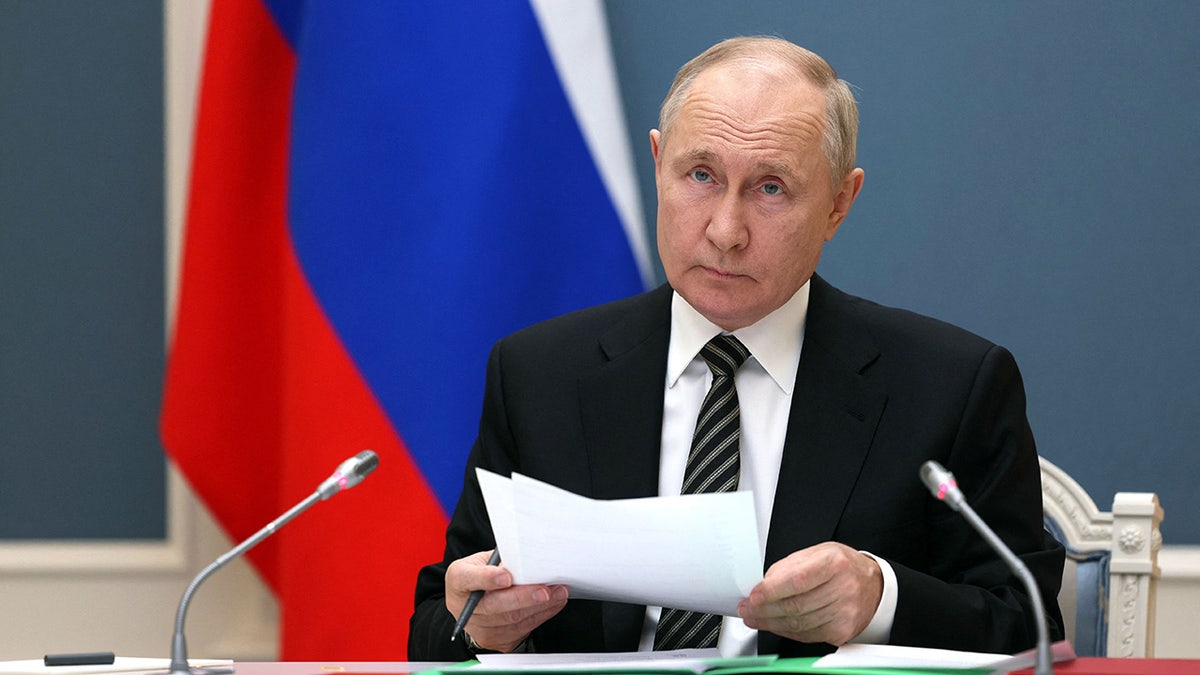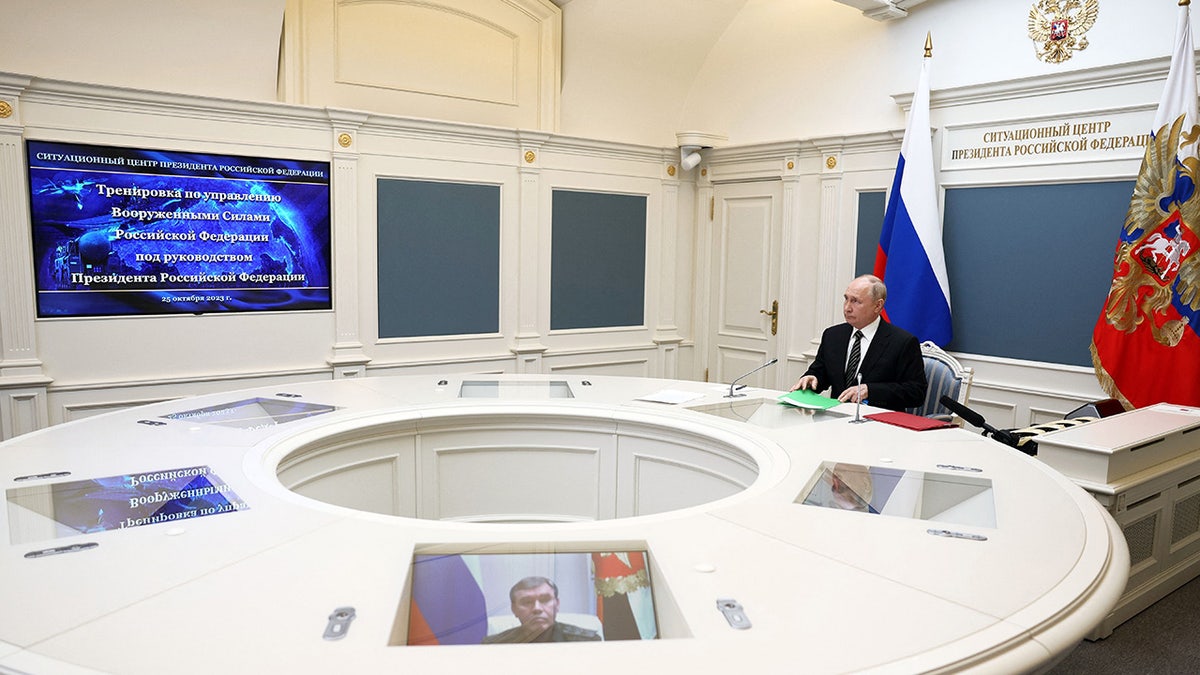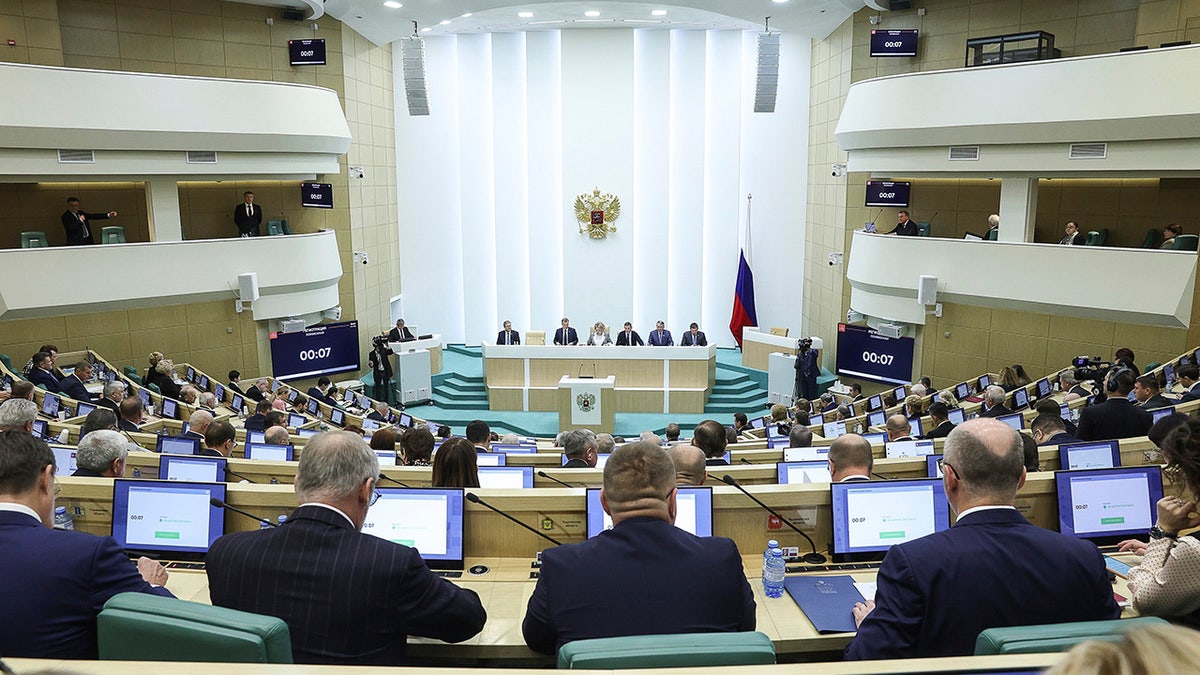Putin is pleased that attacks on Israel have taken attention off Ukraine: Rebekah Koffler
Rebekah Koffler, author of 'Putin's Playbook,' shares insight into Russia's position on the war in Israel.
Russian President Vladimir Putin oversaw military drills Wednesday, including the simulation of a nuclear strike, more than 20 months since Moscow's forces invaded Ukraine.
The Kremlin's announcement of the exercise, which simulated a nuclear strike in response to a nuclear attack and involved multiple practice launches of ballistic and cruise missiles, came hours after the upper house of the Russian parliament revoked the ratification of a global nuclear test ban in what Moscow has described as a move to establish parity with the United States. The bill to end ratification will now be sent to Putin for final approval. The lower house approved it last week.
Russian state television showed Putin directing the exercise via video call with top military officials.
The Kremlin said in a statement Wednesday that the Russian military has successfully tested its ability to deliver a massive retaliatory nuclear strike by land, sea and air, according to Reuters. The statement said a Yars intercontinental ballistic missile was fired from a test site at a target in Russia's far east, a nuclear-powered submarine launched a ballistic missile from the Barents Sea, and Tu-95MS long-range bombers test-fired air-launched cruise missiles, according to the outlet.
RUSSIA SAYS BIDEN'S COMPARISON OF PUTIN AND HAMAS IS 'UNACCEPTABLE': REPORT

Russian President Vladimir Putin oversees a training exercise of nuclear deterrent forces via a video link in Moscow on Oct. 25, 2023. (Gavriil Grigorov/Pool/AFP via Getty Images)
"Practical launches of ballistic and cruise missiles took place during the training," the Kremlin said. "In the course of the events, the level of preparedness of the military command authorities and the skills of the senior and operational staff in organizing subordinate troops (forces) were tested."
"The tasks planned in the course of the training exercise were fully accomplished," they added.
Russia’s defense ministry published video of the exercise showing the land and submarine-based missiles and nuclear-capable bomber aircraft taking off from an airfield streaking into the night sky. Russia's Minister of Defense Sergei Shoigu said the purpose of the drills is to practice "dealing a massive nuclear strike with strategic offensive forces in response to a nuclear strike by the enemy." While similar drills are held every autumn, Shoigu's pointed comments came amid soaring tensions between Russia and the West over the fighting in Ukraine.

Putin oversees a training exercise of ground, sea and air nuclear deterrent forces on Oct. 25, 2023. (Gavriil Grigorov/Pool/AFP via Getty Images)
The vote to rescind the Comprehensive Nuclear Test Ban Treaty in the Russian Parliament follows a statement from Putin, who warned earlier this month that Moscow could revoke its 2000 decision to ratify the bill to "mirror" the stand taken by the U.S., which has signed but not ratified the nuclear test ban.
The CTBT, adopted in 1996, bans all nuclear explosions anywhere in the world, but the treaty was never fully implemented, according to The Associated Press. In addition to the U.S., it is yet to be ratified by China, India, Pakistan, North Korea, Israel, Iran or Egypt.
RUSSIA IS CLOSELY MONITORING US NUCLEAR TEST IN NEVADA, PUTIN'S SPOKESPERSON SAYS
There are widespread concerns that Russia could move to resume nuclear tests to try to discourage the West from continuing to offer military support to Ukraine. Many Russian hawks have spoken in favor of a resumption of the tests.
With tensions the highest since the 1962 Cuban missile crisis as Moscow stands opposed to the West over the Ukraine war, Russia had indicated that despite its de-ratification, the country does not plan to abandon a 1992 moratorium on nuclear test blasts in line with the Comprehensive Test Ban Treaty. Moscow signed the treaty. Washington also signed but never ratified the same document, according to Reuters. Experts say Russia's move is meant to evoke fear of a standoff with the West.

The upper house of the Russian parliament has revoked the ratification of a global nuclear test ban in what Moscow has described as a move to put itself on par with the United States. (Federation Council of the Federal Assembly of the Russian Federation via AP)
Putin has noted that while some experts have argued that it is necessary to conduct nuclear tests, he has not yet formed an opinion on the issue.
Russia’s Deputy Foreign Minister Sergei Ryabkov said earlier this month that Moscow will continue to respect the ban and will only resume nuclear tests if Washington does it first.
Ryabkov said Wednesday that the Russian Foreign Ministry had received U.S. proposals to resume a dialogue on strategic stability and arms control issues, but noted that Moscow doesn't consider it possible in the current political environment.
CLICK HERE TO GET THE FOX NEWS APP
"We aren't ready for it because the return to a dialogue on strategic stability... as it was conducted in the past is impossible until the U.S. revises its deeply hostile policy course in relation to Russia," Ryabkov told reporters in comments carried by Russian news agencies.
The Associated Press contributed to this report.


